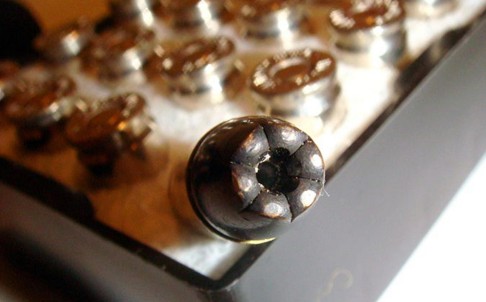- Joined
- Feb 25, 2014
- Messages
- 309
- Points
- 0
Oscar Pistorius trial told of deadly history of bullets that killed Reeva
Oscar Pistorius trial told of controversy over ammunition known as Black Talon
PUBLISHED : Tuesday, 11 March, 2014, 9:02pm
UPDATED : Wednesday, 12 March, 2014, 12:58am
Agence France-Presse in Johannesburg

Black Talon bullets flare out on impact. Photo: SCMP Picture
The bullets that killed Paralympian Oscar Pistorius's girlfriend were of a type that has been the subject of repeated, though largely unsuccessful, bans since the 19th century.
A pathologist who performed an autopsy on Reeva Steenkamp the day after she died told the court that the fatal gunshot wounds were inflicted by a type of expanding ammunition once known as "Black Talon".
The American-manufactured bullets, fired by Pistorius from a 9mm pistol, were banned in the 1990s in South Africa, but made their way back to the market under a different name, Ranger.
But even before that, hollow- and soft-point bullets - also known as Dum-Dums - were officially proscribed by the 1899 Hague Convention governing the laws of war.
That text's overly precise description rendered it almost meaningless and left ample scope for loopholes, yet their deadliness remains undisputed.
"It opens up once it is inside the body and cuts the tissue," said Jacobus Steyl, the owner of Durban-based specialist Forensic Ballistic Services.
"It causes severe damage... It's quite dangerous," he said.
On impact, expanding bullets flare out, forming jagged edges, like flower petals.
According to the Red Cross, this can happen within centimetres of entering the body.
The effect is more pronounced at higher velocity, and at close range, like the bullets that shattered the 29-year-old Steenkamp's body through a bathroom door.
Gun experts said that hollow-points can be bought at many gun shops in South Africa. The ammunition was first manufactured by Winchester Ammunition in 1991, and became popular in South Africa during the violent years before the end of apartheid.
Steyl said the ammunition was banned just before the advent of democracy in 1994.
Variations on the bullets are now commonly used by security enforcement agencies.
Pistorius, 27, says he fired four shots at Steenkamp on February 14, 2013, through a locked toilet door, believing her to be an intruder. He denies intentionally killing her.
